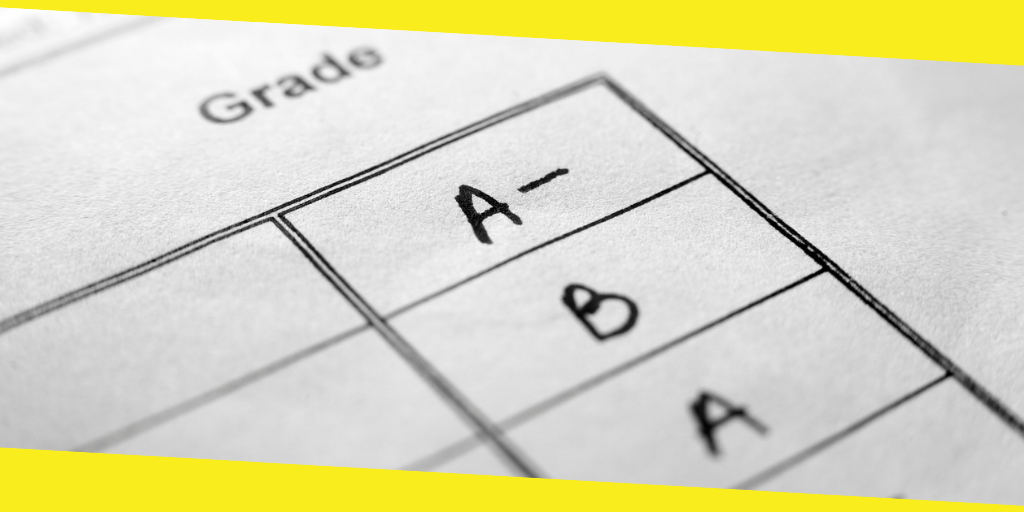Do Grades Reflect the Students’ Intelligence?
This post was last updated on December 2nd, 2024

The fundamental goal of education is to impart knowledge and nurture the embedded talents of the future generation. Martin Luther King Jr once said, “The function of education is to teach one to think intensively and to think critically. Intelligence plus character — that is the goal of true education.”
Traditional education has not been able to fulfill those functions holistically. However, thanks to technological advancements, many attempts to remedy the shortcomings of the conventional methods were successful.
But, grading systems are still used as a means to detect and evaluate students’ intelligence. Although such a method has its advantages, it cannot assess something as complex as human intelligence accurately enough.
Yes, many students do not care about creating an image of a perfect scholar. They might purchase a professional custom paper if the course doesn’t influence their major. But for others, the score they get is critical because, for them, it determines how society perceives them.
The problem with using grades as a tool to represent the level of students’ knowledge is that it doesn’t take into account various types of intelligence. In fact, we have been gradually losing students with great potential. In hopes to change that, we discuss several major reasons why grades do not reflect your intelligence.
What is Intelligence?
Although there isn’t one unified definition of intelligence, it can be partially defined as the ability to acquire, process, and apply knowledge. Unfortunately, the idea of grading our intelligence in schools does not factor in the whole picture.
Why Grading is Not a Sign of Intelligence
1. There are different kinds of intelligence
Although many efforts and sacrifices have been made to propel education to where it is today, we fail to recognize that the grading system in schools only focuses on intelligence as the student’s ability to memorize information and reproduce it in a test. As such, students who cannot meet these criteria are often considered inferior in terms of their mental capacity. But that’s a misconception because there are different types of intelligence, namely:
- Naturalistic
- Musical
- Logical
- Existential
- Interpersonal
- Bodily-kinesthetic
- Linguistics
- Spatial
Unfortunately, the tests conducted in our schools do not take into account all the types of intelligence. As such, its impossible to conclude that a student is not as intelligent as those with higher results just based on their grades.
2. Other factors play a role
We are complex beings with emotional, psychological, and spiritual needs. As such, any imbalance between any of these essentials can prevent students from scoring high. Also, before taking a test, you should consider several things that can cause students to get lower grades. Amongst them are:
- Poor time management
- The lack of self-discipline
- No motivation
Poor time management
Combining your job or hobbies with academic duties can be a hassle, especially without proper time-management skills. According to this research, good time managers are most likely to have a higher GPA. However, it doesn’t mean that students who don’t schedule their activities are less intelligent. Once they learn to manage their time better, they are likely to bring their grades up.
Self-discipline
Students lacking self-discipline are less likely to make it in college let alone the corporate world. They would rather spend their time playing video games and partying than actually studying.
Although such students might fail their tests and skip lectures, they can catch up once they learn to be self-disciplined and focus on studies.
Source of motivation
Once again, motivation is also a contributing factor to students’ performance. A highly motivated student will show interest and be attentive during lectures. As such, he or she is likely to get better grades.
In contrast, unmotivated students take little to no interest in class activities and usually end up scoring low. However, getting mediocre grades is not the reflection of such student’s intelligence. With the right attitude towards studies, these students can reach the same results as their “more successful” peers, earning high GPAs and above-average scores on standardized tests. With effort and discipline, nearly any student can enter a top-tier school like Columbia or Harvard.
Bottom Line
In conclusion, the intelligence grading system in schools should not be abolished but rather adjusted. Our intelligence cannot be simply measured and tagged as low or high if the approach stays the same for everyone. With enough elaboration, it is possible to improve the current state of things and unlock the potential of many more students.
Recommended For You
How to Get into a PA Program
Most Inside
Most Inside offers high-quality recommendations and valuable updates to enhance all aspects of your life, providing premium guidance and enriching experiences.




